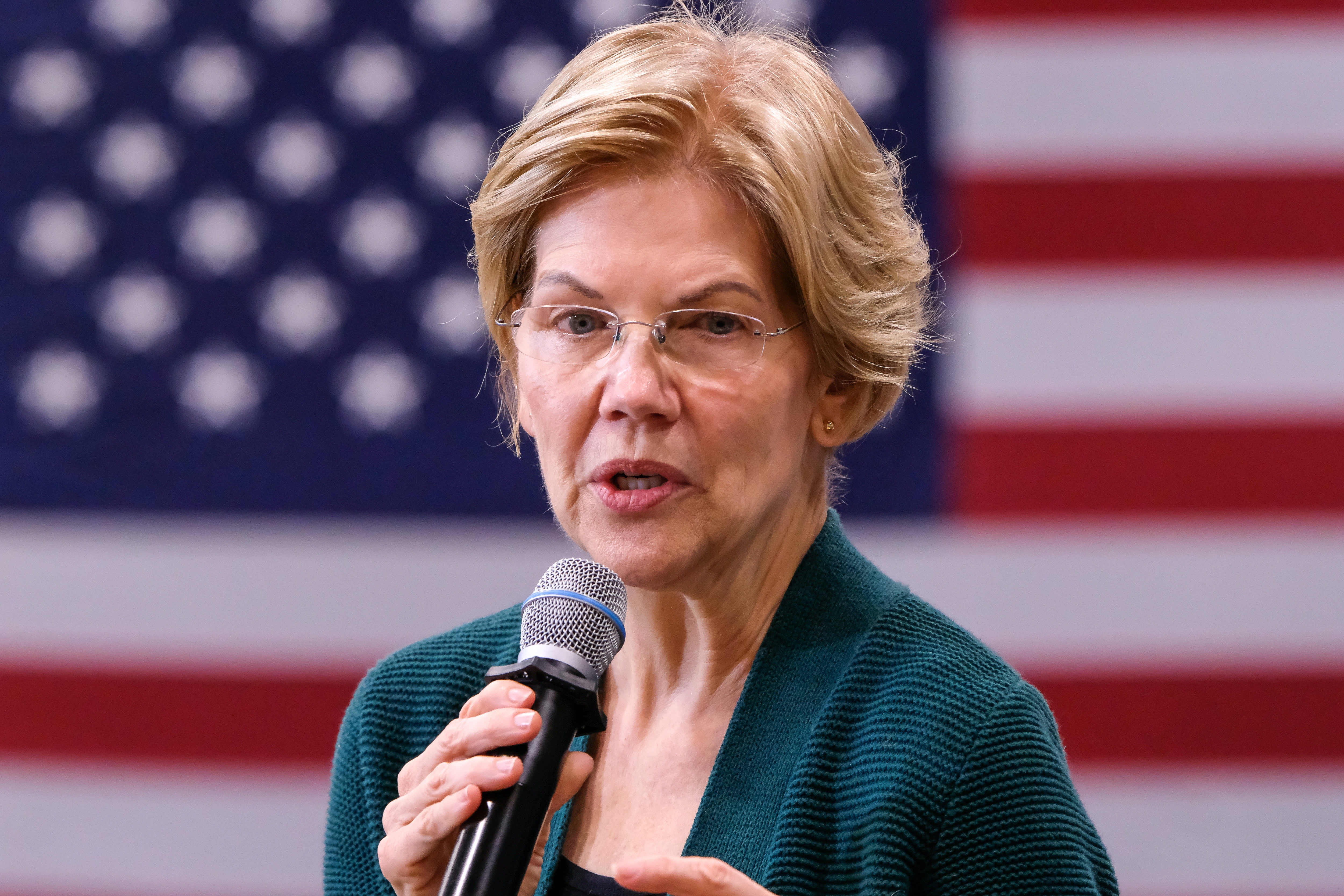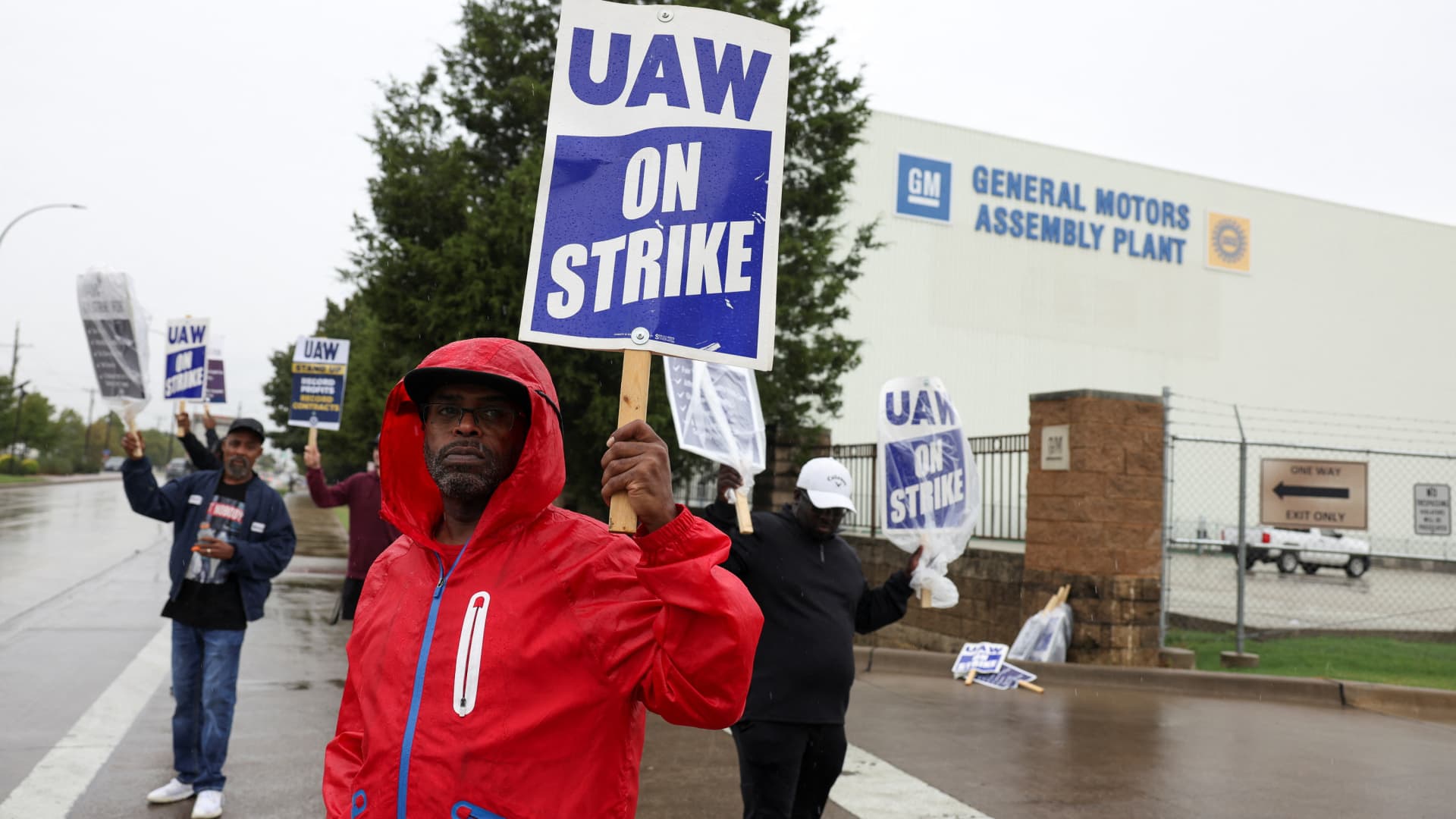
Sen. Elizabeth Warren on Tuesday lambasted share buybacks as market manipulation made to inflate executive pay, calling them a poor use of excess corporate profits that could instead be reinvested in a business or workers.
Asked by CNBC’s Joe Kernen whether buybacks could be wholly bad if they increase the value of existing shares held by longtime investors or retirement funds, Warren doubled down.
“This is nothing but paper manipulation. ‘Everybody’s doing better’? Listen to yourself!” she told the “Squawk Box” co-host. “Nothing about the business changed. They’re still turning out the same number of widgets at the same cost and selling them to the same customers.”
She argued that stock repurchases do nothing to improve the quality of a business or the goods and services it produces.
“They got a little fluff-and-buff in their stock. And how did they do that? By taking their excess cash and saying, ‘Geez, we can’t figure out anything to do with this cash. We’re not going to give it back to our investors. We’re going to make the investment decision that the only investment in America that makes any sense is to buy back our own stock.'”
Presidential candidate Elizabeth Warren addresses her supporters in Manchester.
Preston Ehrler | LightRocket | Getty Images
Instead, she asserted that buybacks are a convenient way to pump residual corporate profits into the market in order to increase the wealth of the company’s top shareholders, which often include executives and corporate management.
“Squawk Box” co-host Becky Quick asked Warren to explain the difference between a corporate board approving a billion-dollar stock buyback program and one business partner buying out a partner who wishes to sell his equity in their hypothetical company.
“If you want to buy your partner’s shares and you want to hold your partner’s shares, that’s fine,” Warren said. “But that’s not what share buybacks are. Share buybacks are going into the market and pumping up the price of your shares by using your own cash, not to invest in business.”
The Massachusetts Democrat suggested that quarterly dividends are a better, less manipulative, way to return corporate cash to stakeholders.
Buybacks and dividends are considered two of the most proactive ways a company can return wealth to its stakeholders and reinvest excess cash in itself. When a company repurchases outstanding shares, it decreases those available in the market and the relative ownership stake of each existing investor increases.
Stated motivations for buybacks vary, but almost always stem from management’s belief that the marketplace is incorrectly undervaluing a promising business. Berkshire Hathaway CEO and billionaire investor Warren Buffett has for years touted the benefits of buybacks, which he says allow management to return capital only when it feels the market is underappreciating the business.
“In no way do we think that Berkshire shares should be repurchased at simply any price,” Buffett said in his annual stakeholder letter, published Saturday. “I emphasize that point because American CEOs have an embarrassing record of devoting more company funds to repurchases when prices have risen than when they have tanked. Our approach is exactly the reverse.”
Warren’s opposition to buybacks — as well as her advocacy for better business practices and worker protections — is not new. Warren, a member of the Senate Banking Committee, has championed legislation requiring companies with over $1 billion in revenue to allow their workers to elect 40% of their board seats.
Warren’s appearance on CNBC came a day after she and Sen. Bernie Sanders, I-Vt., proposed a 3% total annual tax on wealth exceeding $1 billion. They also called for a lesser, 2% annual wealth tax on the net worth of households and trusts ranging from $50 million to $1 billion.
The stated goal of the Ultra-Millionaire Tax Act is to shrink a widening U.S. wealth gap, the disparity in assets between the richest households and the poorest. The gap has continued to widen amid the Covid-19 pandemic as higher-income employment recovers faster than the lower-wage labor market.
About 100,000 Americans would be subject to a wealth tax in 2023, according to Emmanuel Saez and Gabriel Zucman, economists at the University of California, Berkeley and advisors to Warren.




